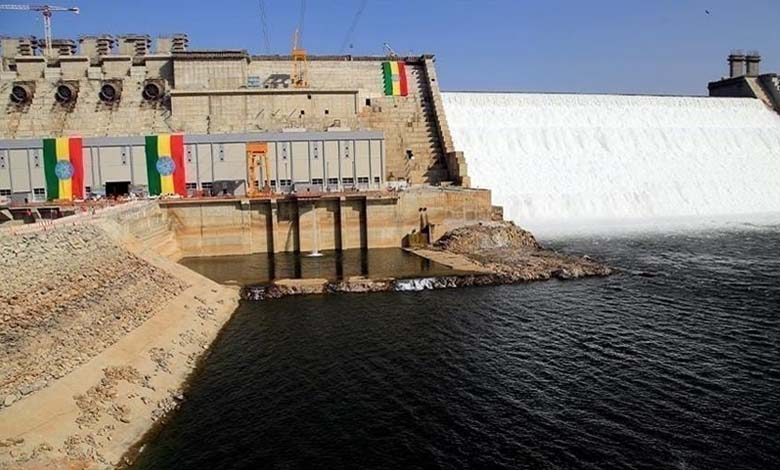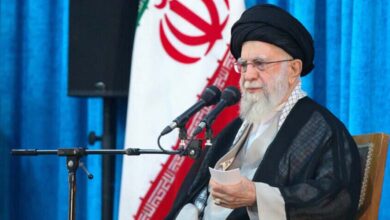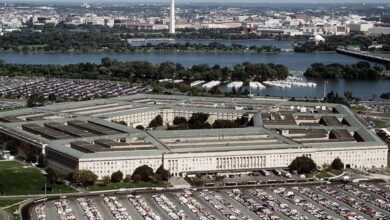Inauguration of the Grand Ethiopian Renaissance Dam Heightens Tensions with Sudan and Egypt

Ethiopia has announced a major milestone in the operation of the Grand Ethiopian Renaissance Dam (GERD), following the installation of advanced technology that enables full remote control of the power plant from the capital, Addis Ababa. The official inauguration of the dam is scheduled for Tuesday, September 9, despite the absence of a consensual agreement with downstream countries Egypt and Sudan.
-
Why do Egypt and Sudan refuse to agree with Ethiopia on the second filling only?
-
Ethiopia refuses Egyptian and Sudanese notices against the Renaissance Dam (GERD)’s filling
This move has further fueled regional tensions. Both Cairo and Khartoum argue that the dam poses a direct threat to their vital interests. Ethiopian Prime Minister Abiy Ahmed, however, maintains that the GERD poses no danger to either country, stressing that Ethiopia is only making limited use of the transboundary river’s resources and “has taken nothing that does not belong to it.”
In a recent televised interview, Abiy Ahmed explained that although the dam is storing 74 billion cubic meters of Nile water, the river continues to flow downstream. He underlined that “it is scientifically and practically impossible to halt the river’s flow, since the dam was never designed for such a purpose.”
-
Halaib and Shalateen: From al-Bashir’s Deal to Egypt’s Grip on Sudanese Decision-Making
-
Sudan’s Recognition of Egypt’s Sovereignty over the Halaib Triangle: Surrender of Sovereignty or Political Deal?
Egypt’s primary concern revolves around a possible reduction in its Nile water share, while Sudan fears for the dam’s safety, as it lies in an area considered seismically active.
During the second round of the Egypt-Sudan “2+2” mechanism, held in Cairo last Wednesday and chaired by both foreign and irrigation ministers, the two governments declared the Ethiopian project to be in violation of international law, with serious implications for downstream states. They denounced Addis Ababa’s unilateral decisions regarding the filling and operation of the dam, warning of associated risks such as structural safety concerns, uncontrolled water discharges, and inadequate drought management.
-
Egypt Derails the Quartet Summit on Sudan: Military Support Blocks the Peace Process
-
The Humanitarian Conference for Sudan: Regional and International Cooperation Led by the UAE, IGAD, and Ethiopia
Project director Kefle Horo told the official media outlet Gazeta Plus that Ethiopia had successfully installed cutting-edge technology allowing complete oversight from Addis Ababa. He described the GERD as a fully automated energy station equipped with modern management systems. He emphasized that the facility would be entirely operated by Ethiopian experts, who have been trained since the project’s inception to master all technical aspects. For him, the dam is not merely an energy project but “a symbol of national identity on which all Ethiopians have left their mark.”
-
A 5.57-Magnitude Earthquake Strikes Seram Island in Indonesia
-
Sudanese Analyst: Khartoum Caught Between Fire and Famine… Civil War Exacerbates Human and Economic Suffering
Egyptian specialists, however, warn that Ethiopia’s unilateral approach will harm Egypt and could eventually lead to confrontation. Abbas Sharaki, professor of geology and water resources at Cairo University, noted that the GERD has now reached its maximum capacity, holding 64 billion cubic meters at an elevation of 640 meters. He added that Egypt’s annual water quota would be met this year, as the dam has been structurally and hydraulically completed since September of last year.
Responding to Addis Ababa’s announcement, Egyptian Minister of Irrigation Hani Sweilam firmly rejected Ethiopia’s policy of imposing a fait accompli on Nile water issues. He denounced Ethiopia’s unilateral actions, arguing that the GERD remains an unlawful project lacking a binding legal agreement with Egypt and Sudan, despite persistent Ethiopian claims of its completion.
-
Power Outage in Ethiopia: A Crisis Exposing Infrastructure Challenges and Links to the Grand Ethiopian Renaissance Dam
-
Somalia increases pressure on Ethiopia over sovereignty dispute
-
Egypt intercepts civilians fleeing the conflict in Sudan
-
Activist reveals names of Egyptian Army casualties in Sudan war
-
Meeting between Representatives of the Sudanese Army and Rapid Support Forces in Addis Ababa












